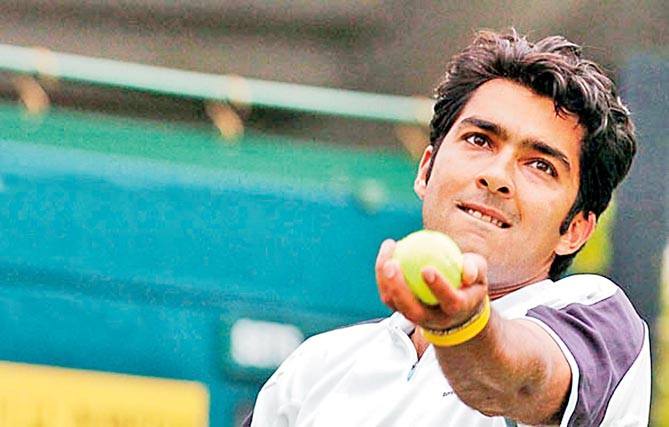
It was back in 2014 that Salim Saifullah took over as PTF president with ambitions to lift the standard of Pakistan tennis. Two years on, he has achieved little or nothing in his bid to give the sport a much-needed boost

Almost two years ago, Salim Saifullah was elected as Pakistan’s tennis chief on the back of the promise to turn tennis into a major sport in Pakistan. I remember interviewing him a few weeks before the Pakistan Tennis Federation (PTF) elections back in November, 2014. Saifullah, a prominent businessman and politician from KP who has a long association with Pakistan tennis, wanted to take over the sport with promises that he would raise its profile. For years, tennis had languished as a second tier sport in Pakistan with little or no recognition in this cricket-mad country. Over the years, the country has produced players like Saeed Hai, Haroon Rahim and more currently Aisam-ul-Haq Qureshi and Aqeel Khan, who have made their presence felt, but more often than not Pakistan tennis has managed only false shots.
In the interview, Saifullah claimed that if given the control of PTF he would change the script for Pakistan tennis. Boasting a "50-year-old attachment" with the sport, Saifullah talked about launching a "concrete and comprehensive" campaign to lift Pakistan tennis.
Almost two years later, most of his promises remain unfulfilled. Recently, Pakistan’s Davis Cup team was blanked 5-0 by New Zealand in their Davis Cup Asia-Oceania Group-I match in Christchurch. There is little that Saifullah, whose family was named in the Panama Papers earlier this year, has achieved despite the fact that he has been around for almost two years.
The unfortunate part is that Saifullah is not the first man to get elected on the back of hollow promises. More often than not our sports officials talk big when they are contesting an election and then forget all about their assurances once they get elected. Almost all of Saifullah’s predecessors failed to put Pakistan tennis on the right track. He has just followed suit.
Today, Pakistan tennis remains as poor as it was two years ago. It continues to rely on the aging Aisam-ul-Haq to help Pakistan have at least some sort of presence, epescially in the Davis Cup. This year, Aisam refused to play the Davis Cup tie against New Zealand and Pakistan were fully exposed. It is crystal clear that without Aisam, Pakistan do not have the firepower to win a Davis Cup match. There is Aqeel Khan, another aging Davis Cup player, but alone he is of little value. Pakistan have failed to produce any worthwhile player since Aisam and Aqeel.
The primary reason behind is not a lack of talent but an absence of a comprehensive training programme, the sort of programme which Saifullah promised in the lead up to his election as the PTF boss. Over the years, I have seen many a talented Pakistani player failing to deliver because of PTF’s failure to have a solid training programme. I remember the meteoric rise of Nida Waseem, once a promising tennis player from Karachi. She was then the youngest Pakistan No 1 and could have been our country’s answer to India’s Sania Mirza. But after initially toying with the idea of pursuing tennis, Nida opted to quit the sport to study law. It was a wise choice.
Aisam became Aisam not because he had any support from the PTF. It’s all because of his parents’ continuous backing that Aisam realized his potential to become Pakistan’s most successful tennis player in history.
Aqeel Khan has been Pakistan’s number one player for donkey’s years. Two of younger brothers -- Jaleel and Yasir -- are also good players. They never really received any worthwhile backing from the PTF apart from getting the opportunity of playing on a national circuit that shouldn’t be described as one. At best, it’s a cluster of low-profile events with negligible prize money.
When it comes to prize money tennis is one of the most lucrative sports in the world. Not in Pakistan, though. A major national tournament offers a modest prize purse even in this day and age. Even golf, which like tennis continues to yearn for recognition in Pakistan, offers tournaments each of which offers around five to six million rupees in prize money. It’s hardly surprising that Aisam almost always stays away from the Pakistani events including the so-called national championships.
The thing is that you cannot raise the profile of a sport by continuing with the same old policies which have failed in the past. Saifullah and his team should know that to actually turn tennis into a major sport in Pakistan, they will need to devise a new game plan. They will actually need to launch a "concrete and comprehensive" campaign to lift Pakistan tennis. Whether they have the capacity to do it is a different question.